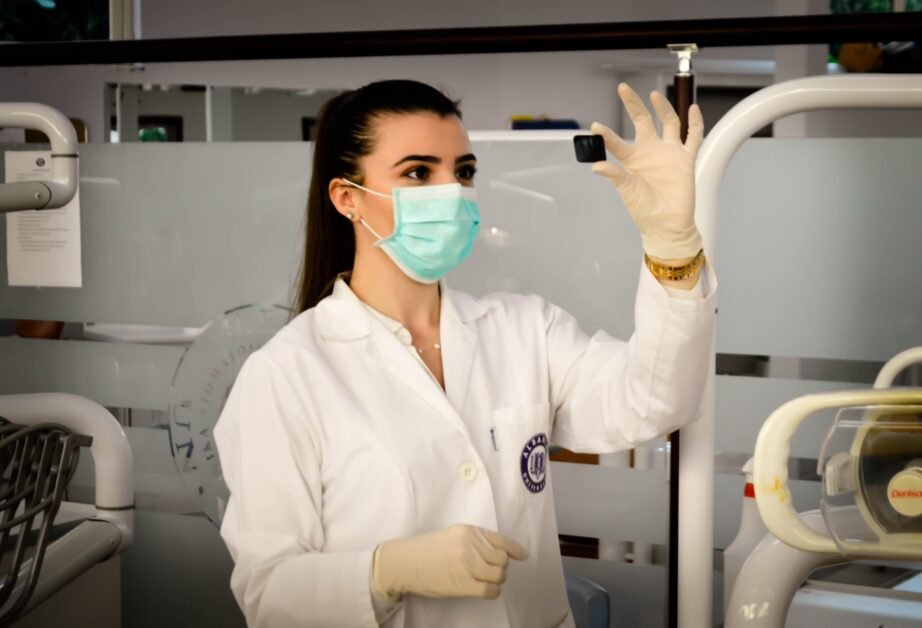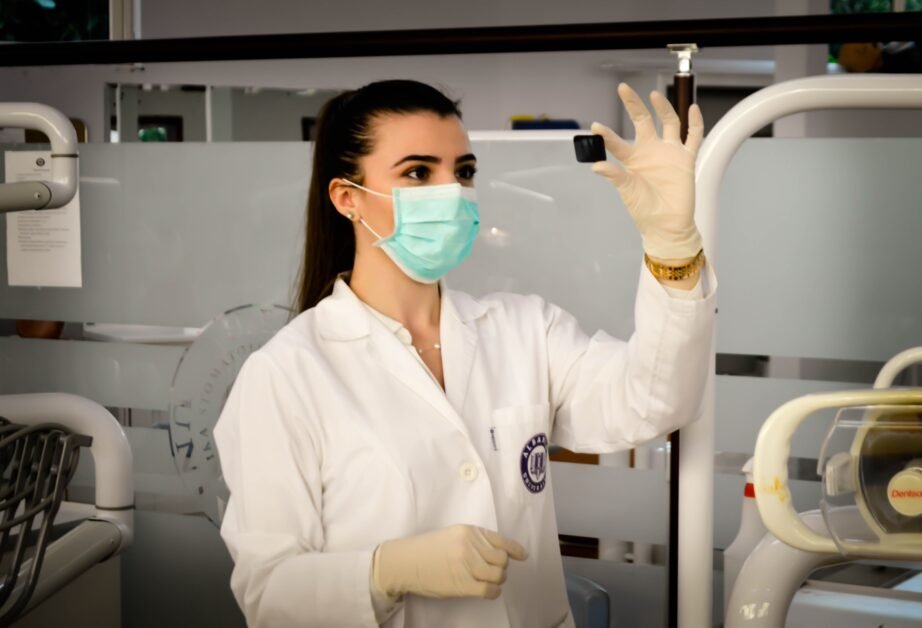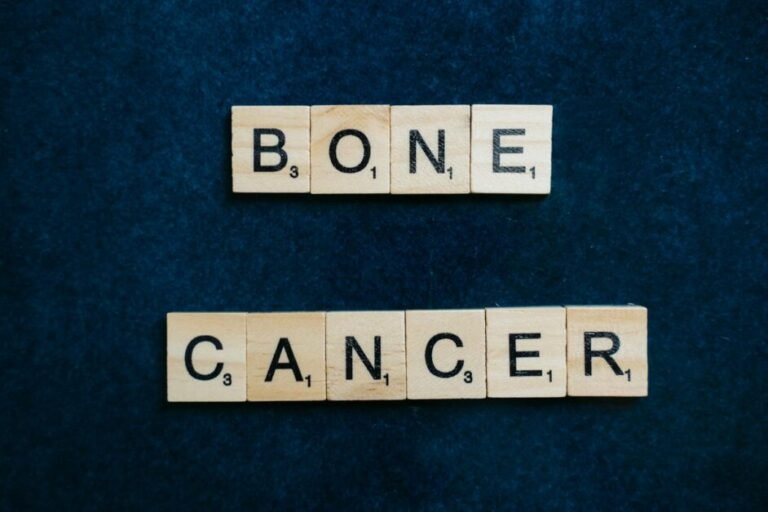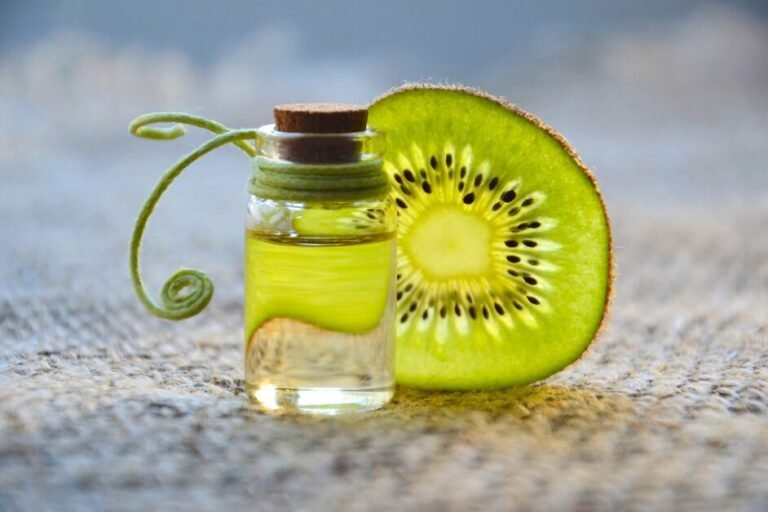Exploring the Benefits of Alternative Medicine Practices
At Alternative Medicine Facts, our passion lies in promoting holistic healing and uncovering the numerous benefits of alternative medicine practices. We firmly believe that exploring different approaches to wellness can empower individuals to make informed decisions about their health and well-being. With a commitment to providing reliable, evidence-based information, we strive to give you the knowledge you need to embrace alternative medicine and its potential to enhance your overall quality of life. Welcome to a world of alternative medicine practices that have the power to transform your health journey.
1. Acupuncture
History and Overview
Acupuncture is an ancient practice that originated in China over 2,500 years ago. It is based on the belief that energy flows through the body along specific pathways called meridians. By inserting thin needles into specific points along these meridians, acupuncture aims to restore the balance of energy and promote the body’s natural healing process.
Potential Benefits
Acupuncture has gained recognition for its potential benefits in a variety of conditions. It has been shown to provide relief for chronic pain, such as back pain, migraines, and osteoarthritis. Additionally, acupuncture has been used as a complementary treatment for anxiety, depression, and insomnia. Some studies have also suggested that acupuncture could help with fertility issues and promote overall well-being.
Treatment Process
During an acupuncture session, a licensed practitioner will examine the patient’s condition and determine the appropriate treatment plan. The practitioner will insert thin needles into specific points on the body, which may be manipulated gently to stimulate the flow of energy. The needles are typically left in place for around 15-30 minutes while the patient relaxes. The number of sessions required may vary depending on the individual’s condition.
Considerations and Precautions
While acupuncture is generally considered safe when performed by a trained practitioner, there are a few considerations and precautions to keep in mind. It is important to choose a licensed and experienced practitioner to ensure safety and effectiveness. Some individuals may experience mild side effects such as bruising, bleeding, or temporary pain at the needle insertion sites. Additionally, pregnant women should consult with their healthcare provider before undergoing acupuncture.
2. Herbal Medicine
Traditional Uses and Cultural Significance
Herbal medicine has been used for centuries in various cultures around the world. It involves the use of plants and plant extracts to promote healing and restore balance in the body. Traditional herbal medicine practices, such as Ayurveda and Traditional Chinese Medicine (TCM), have long recognized the healing properties of herbs and their ability to address both physical and mental health conditions.
Efficacy and Safety
Herbal medicine is known for its holistic approach to health, targeting the root cause of an ailment rather than just the symptoms. While many herbs have been extensively studied and shown to have therapeutic effects, it is important to note that not all herbal remedies have scientific evidence to support their efficacy. Safety is also a consideration, as some herbs may interact with medications or have potential side effects. It is advisable to consult with a qualified herbalist or healthcare provider before using herbal remedies.
Commonly Used Herbs
There are numerous herbs used in herbal medicine, each with its own unique properties and potential health benefits. Some commonly used herbs include:
- Echinacea: Known for its immune-boosting properties, echinacea is often used to prevent or shorten the duration of colds and respiratory infections.
- Ginseng: Widely used in TCM, ginseng is believed to enhance vitality, improve cognitive function, and reduce stress.
- Turmeric: With its powerful anti-inflammatory properties, turmeric is used to relieve pain, support joint health, and aid digestion.
- Chamomile: This soothing herb is commonly used to promote relaxation, relieve anxiety, and improve sleep quality.
- Milk Thistle: Considered a liver-protective herb, milk thistle is often used to support liver health and aid in detoxification.
Preparation and Administration
Herbal remedies can be prepared and administered in various forms, depending on the herb and its desired effects. Some common methods include infusions or teas, tinctures, capsules or tablets, and topical preparations. The dosage and frequency of administration will also vary depending on the individual and the specific herb being used.

3. Homeopathy
Principles of Homeopathy
Homeopathy is a form of alternative medicine that was developed in the late 18th century by Samuel Hahnemann. It is based on two core principles: “like cures like” and the principle of dilution. According to the principle of “like cures like,” a substance that produces symptoms in a healthy person can be used to treat similar symptoms in an ailing person. The principle of dilution involves the use of highly diluted substances, which are believed to retain the energy or essence of the original substance.
Treatment Approach
In homeopathy, each individual is considered unique, and treatment is tailored to their specific symptoms and characteristics. A homeopathic practitioner will conduct a detailed consultation to gather information about the individual’s physical and emotional symptoms, lifestyle, and medical history. Based on this information, a homeopathic remedy that matches the individual’s symptoms will be prescribed. Homeopathic remedies are typically available in the form of small pellets or liquids.
Conditions and Symptoms Treated
Homeopathy is used to address a wide range of acute and chronic conditions. It is commonly used for allergies, digestive disorders, respiratory infections, skin conditions, musculoskeletal pain, and mental health issues. Homeopathic remedies are chosen based on the individual’s symptom picture, taking into account both physical and emotional symptoms.
Critiques and Controversies
Homeopathy has been a subject of controversy within the medical community, as its principles and mechanisms of action are not fully understood or supported by scientific evidence. Critics argue that the dilution process renders homeopathic remedies essentially water, thus lacking pharmacological effects. However, proponents of homeopathy believe in its effectiveness and cite anecdotal evidence and individual testimonials.
4. Naturopathy
Philosophy and Principles
Naturopathy is a system of healthcare that focuses on the body’s inherent ability to heal itself. It combines traditional healing practices with modern scientific knowledge to promote overall health and well-being. The philosophy of naturopathy is rooted in the belief that the body has an innate wisdom and that health can be achieved by supporting the body’s natural healing processes.
Modalities and Therapies
Naturopathic treatments encompass a wide range of modalities and therapies, including nutrition, herbal medicine, acupuncture, hydrotherapy, physical manipulation, and lifestyle counseling. Naturopaths take a holistic approach to health, addressing not only the physical symptoms but also considering environmental, emotional, and spiritual factors that may impact a person’s well-being.
Promoting Overall Well-being
Naturopathy emphasizes the importance of preventive care and lifestyle modifications to promote optimal health. It encourages individuals to make informed choices about their diet, physical activity, stress management, and sleep patterns. The naturopathic approach also involves educating and empowering individuals to take an active role in their own health and well-being.
Role of Nutrition and Lifestyle
Nutrition plays a key role in naturopathy, as it is believed to be the foundation of health. Naturopaths often recommend a whole foods-based diet, rich in fruits, vegetables, lean proteins, and healthy fats. Lifestyle factors, such as regular exercise, adequate sleep, and stress reduction techniques, are also considered essential for maintaining overall well-being.

5. Ayurveda
Ancient Indian Healing System
Ayurveda is an ancient Indian system of medicine that has been practiced for over 5,000 years. The word “Ayurveda” translates to “science of life” in Sanskrit and is based on the belief that good health requires a balance between the mind, body, and spirit. Ayurveda aims to prevent and treat illness by promoting harmony within the body and with the surrounding environment.
Doshas and Body Types
Central to Ayurvedic principles is the concept of doshas, which are energetic forces that govern various aspects of the body and mind. There are three primary doshas: Vata, Pitta, and Kapha. Each individual is believed to have a unique combination of these doshas, known as their constitution or Prakriti. Understanding one’s dosha helps guide treatment and lifestyle recommendations.
Herbs and Formulations
Ayurveda utilizes a wide range of herbs and natural substances to promote healing and balance within the body. These herbs are often combined in formulations known as Rasayanas, which are revered for their rejuvenating and disease-fighting properties. Some commonly used Ayurvedic herbs include Ashwagandha, Triphala, Turmeric, Holy Basil, and Brahmi.
Holistic Approach to Health
Ayurveda takes a holistic approach to health, considering not only physical symptoms but also emotional, mental, and spiritual aspects of well-being. Ayurvedic treatments may include dietary recommendations, lifestyle modifications, herbal remedies, yoga, meditation, and detoxification practices. The aim is to restore balance and harmony to the body, mind, and spirit.
6. Traditional Chinese Medicine (TCM)
Yin and Yang Philosophy
Traditional Chinese Medicine (TCM) is rooted in the concept of Yin and Yang, which represents opposing yet complementary forces in the universe. Yin is associated with darkness, rest, and cooling, while Yang represents light, activity, and warmth. In TCM, health is achieved when these forces are in balance, and illness arises from an imbalance or blockage of energy.
Five Elements Theory
The Five Elements theory is another fundamental principle of TCM, which links different aspects of the human body and the natural world. These elements – Wood, Fire, Earth, Metal, and Water – are believed to interact and influence each other, both physically and energetically. TCM practitioners use the Five Elements theory to assess and diagnose imbalances within the body.
Acupuncture and Herbal Medicine
Acupuncture and herbal medicine are two key components of TCM. Acupuncture involves the insertion of fine needles into specific points along the body’s meridians to restore the flow of energy. Herbal medicine utilizes various plant-based substances, such as roots, bark, leaves, or flowers, to address specific health conditions and restore balance within the body.
TCM Diagnostics and Treatments
TCM diagnostics involve comprehensive assessments of an individual’s symptoms, tongue appearance, pulse quality, and overall energy. Based on these assessments, a TCM practitioner will create a personalized treatment plan, which may include acupuncture, herbal remedies, dietary recommendations, and lifestyle modifications.

7. Chiropractic Care
Spinal Manipulation
Chiropractic care focuses on the diagnosis and treatment of musculoskeletal disorders, primarily those relating to the spine. Chiropractors use manual manipulation techniques to restore proper alignment and function to the spine, joints, and muscles. By doing so, they aim to alleviate pain, improve mobility, and promote overall health.
Benefits for Musculoskeletal Health
Chiropractic care can provide numerous benefits for musculoskeletal health. It is commonly sought for conditions such as back pain, neck pain, headaches, and joint pain. Chiropractic adjustments can help realign the spine, reduce tension in the muscles, and improve joint function. Regular chiropractic care may also contribute to preventive care and enhanced overall well-being.
Associated Conditions
In addition to musculoskeletal conditions, chiropractic care may have a positive impact on other health conditions. It is believed that the nervous system and musculoskeletal system are interconnected, and spinal misalignments can disrupt the body’s natural healing abilities. Chiropractic adjustments may support the body’s ability to heal itself and improve conditions such as asthma, digestive disorders, and menstrual pain.
Collaboration with Conventional Medicine
Chiropractic care is often used in conjunction with conventional medical treatments. Chiropractors may collaborate with other healthcare providers to develop comprehensive treatment plans for their patients. This collaborative approach allows for a more holistic and integrative approach to healthcare, addressing both the structural and functional aspects of the body.
8. Energy Healing
Concept of Energy Fields
Energy healing is based on the concept that the human body is surrounded by an energy field, sometimes referred to as the aura or biofield. This field is believed to contain vital energy that maintains health and well-being. Energy healing modalities aim to balance and optimize the flow of energy within the body, thereby promoting healing and overall wellness.
Reiki and Healing Touch
Reiki and Healing Touch are two popular forms of energy healing. Reiki practitioners use gentle touch or non-touch techniques to channel healing energy into the recipient’s body. Healing Touch, on the other hand, involves the use of specific hand movements and touch to facilitate energy flow and relaxation. Both modalities are intended to promote physical, emotional, and spiritual healing.
Benefits for Stress Reduction
Energy healing modalities are often sought for their stress-reducing effects. These techniques can induce deep relaxation, reduce anxiety, and promote a sense of inner calm. By restoring balance to the body’s energy field, energy healing helps to alleviate stress and its associated symptoms. Regular energy healing sessions may contribute to improved overall well-being and resilience.
Integration in Palliative Care
Energy healing modalities, such as Reiki and Healing Touch, are increasingly being integrated into palliative care settings. These techniques offer comfort and support to individuals facing serious illness, helping to manage pain, reduce anxiety, and enhance emotional well-being. Energy healing can provide a gentle and non-invasive approach to support both patients and their caregivers.

9. Mind-Body Medicine
Connection between Mind and Body
Mind-body medicine recognizes the intricate connection between our mental and physical well-being. It emphasizes the impact of thoughts, emotions, and beliefs on overall health. Research has shown that stress, negative emotions, and chronic psychological distress can have a detrimental effect on physical health. Mind-body approaches aim to harness the power of the mind to promote healing and enhance well-being.
Meditation and Mindfulness
Meditation and mindfulness practices are key components of mind-body medicine. These techniques involve focusing the mind and increasing present-moment awareness. Regular practice of meditation and mindfulness has been shown to reduce stress, improve sleep, enhance emotional resilience, and promote a sense of inner calm. These practices can be integrated into daily life, providing tools for self-care and stress reduction.
Stress Reduction and Chronic Conditions
Chronic conditions, such as cardiovascular disease, diabetes, and chronic pain, can be exacerbated by stress and psychological distress. Mind-body techniques, such as relaxation exercises, guided imagery, and biofeedback, can help individuals manage stress and mitigate its impact on their health. By reducing the physiological effects of stress, mind-body medicine can support overall well-being and improve quality of life.
Psychoneuroimmunology Explained
Psychoneuroimmunology is the study of the intricate relationship between the mind, the nervous system, and the immune system. Research in this field has revealed the complex ways in which thoughts, emotions, and stress can influence immune function and overall health. The field of mind-body medicine embraces these concepts, recognizing the importance of optimal mental and emotional well-being for physical health.
10. Aromatherapy
Essential Oils and Extracts
Aromatherapy is a practice that utilizes the aromatic properties of essential oils and plant extracts to promote physical, mental, and emotional well-being. Essential oils are highly concentrated extracts derived from plants, preserving their potent aromatic properties. These oils can be used topically, inhaled, or added to baths or diffusers to harness their therapeutic effects.
Psychological and Physical Benefits
Aromatherapy is known for its range of psychological and physical benefits. Different essential oils have distinct properties and effects. For example, lavender essential oil is often used to promote relaxation and improve sleep quality, while peppermint essential oil is invigorating and can alleviate headaches and improve focus. Aromatherapy can enhance mood, reduce stress, improve cognitive function, and support overall well-being.
Application Methods
There are various ways to apply aromatherapy for therapeutic purposes. Inhalation is a popular method, where essential oils are added to diffusers, applied to cotton balls, or inhaled directly from the bottle. Topical application involves diluting essential oils with carrier oils and massaging into the skin. It is important to follow safety guidelines and use proper dilution ratios when using aromatherapy topically.
Safety Precautions
While aromatherapy is generally considered safe when used properly, it is important to exercise caution and follow safety guidelines. Essential oils are highly concentrated and can cause skin irritation or allergic reactions if used undiluted or in excessive amounts. Some essential oils may also be toxic if ingested. It is advisable to consult with a qualified aromatherapist or healthcare professional before using aromatherapy, especially for individuals with specific health conditions or sensitivities.
In conclusion, alternative medicine practices offer a diverse range of approaches to health and well-being. From acupuncture and herbal medicine to homeopathy and energy healing, these practices aim to address the root causes of illness and promote holistic healing. Whether through ancient healing systems like Ayurveda and TCM or modern integrative approaches like chiropractic care and mind-body medicine, alternative medicine provides individuals with choices and opportunities to take an active role in their health. It is important to approach these practices with an open mind, seek qualified practitioners, and always prioritize your safety and well-being. Remember, alternative medicine is a complement, not a replacement, to conventional medical care.








